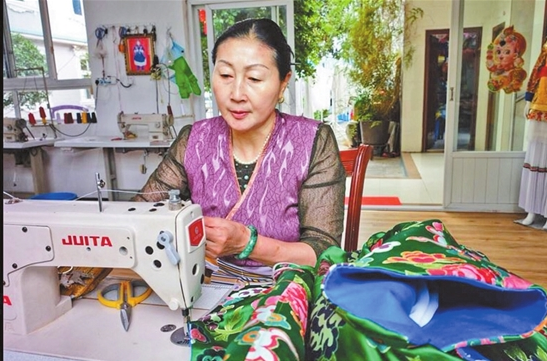Genetic mechanism discovery in ancient organism points to better disease treatment: research
New evidence of advanced DNA regulation in an ancient marine organism shows that crucial mechanisms turning genes on and off may have originated much earlier than thought, a discovery that points to better understanding of genetic processes and disease treatment, according to Australian-linked research.
The study, co-led by Australian researchers, analyzed the DNA of ancient marine organism "Amphioxus" and uncovered the "tricks" used to control gene expression, or which genes are turned on, off and when, the Garvan Institute of Medical Research biomedical facility said in a statement on Thursday.
The translucent fish-like organism lay "right at the vertebrate-invertebrate boundary" and was "perfectly positioned to help us understand how our genomes made the leap from invertebrate to vertebrate", said the institute's Dr. Ozren Bogdanovic.
"Humans are vertebrates', which is a group that includes mammals, birds, fish. While flies are invertebrates' insects, worms, jellyfish. With Amphioxus, we have one of the closest living invertebrate relatives to humans almost a vertebrate, but not quite," said Bogdanovic, one of the study's lead authors.
The ancient organism helped offer evidence of regions that are used to regulate gene expression, for the first time, in an invertebrate specie, said Bogdanovic.
"It tells us that this mechanism of regulation might have appeared a lot earlier millions of years earlier," he said. "And this tells us a lot about how DNA regulation evolved, but also helps us understand more about how it works in more complex organisms, like ourselves."
The next step in the study is to continue investigating the link between vertebrates and invertebrates, to gain a better understanding of DNA regulation, said Bogdanovic. His team's findings were published in scientific journal Nature.
"This will allow us to deepen our understanding of how DNA regulation works, and especially how it goes wrong in disease. Understanding these processes has the potential to help us better understand and ultimately treat disease," he said.
Tibet Stories

Dressmaker Drolma: I only do one thing in my whole life
"As the oldest daughter in my family of five girls, my family has only asked me to do one th...
Editor’s Choice
- Emergency response activated after landslide in SW China
- Top political advisor congratulates World Buddhist Forum opening
- "Tropical rainforests" present in Tibet 40 mln years ago: expert
- Preferential policies released for “Winter Tours in Tibet”
- Top leaders attend congress of returned overseas Chinese
Latest News
- Xi arrives in Brunei for state visit
- China eyes more exchanges with cities around the world
- Xinjiang ethnic cultures part of Chinese culture: white paper
- Mainland's further reform and opening up to provide better opportunities for Taiwan
- Full text of Chinese Premier Li Keqiang's speech at China-ASEAN Summit
